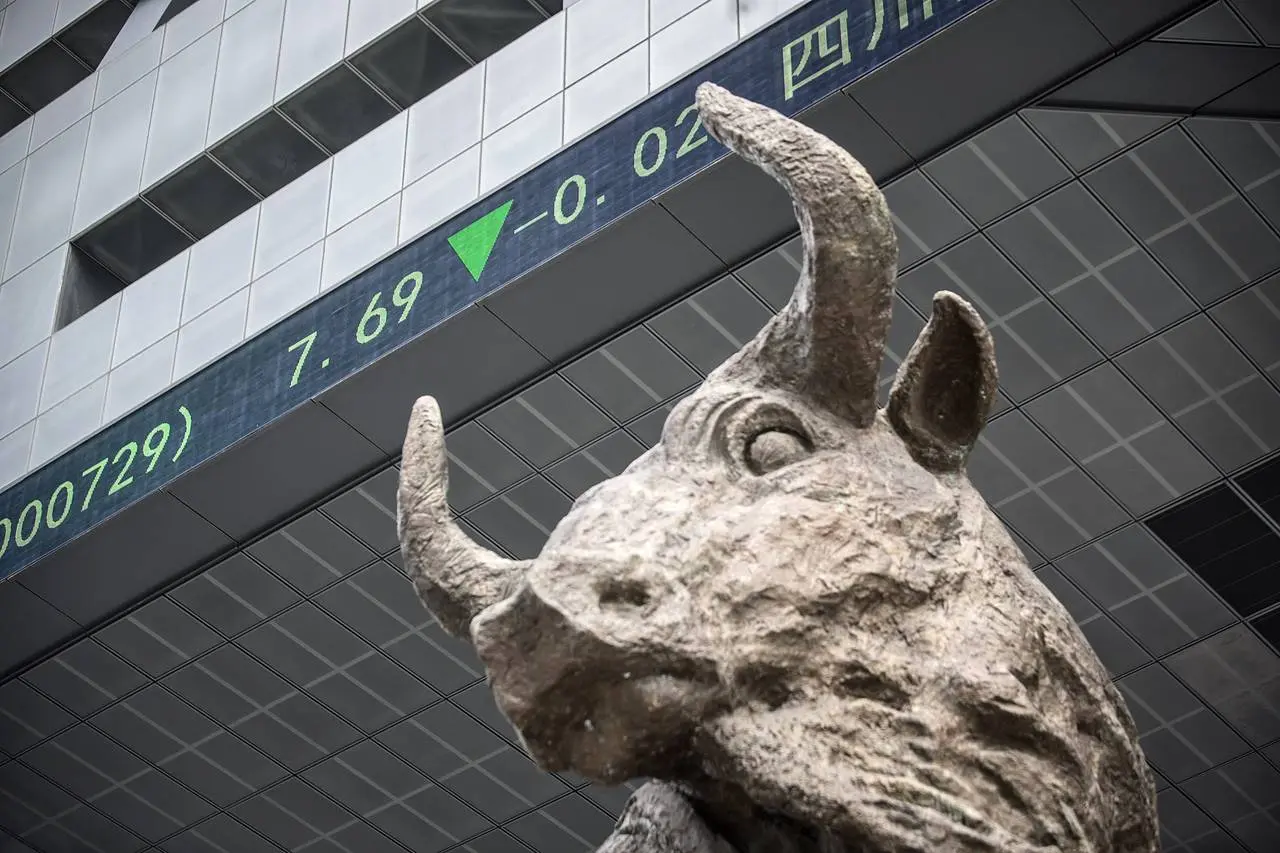
It's more difficult than ever to read what's happening in Chinese stocks. Stocks in China have been hammered by a weak economy, debt problems, and geopolitical tensions. The second-biggest economy in the world is on the verge of a deflationary spiral, so they might fall even more next year. But a remarkable recovery might occur if President Xi Jinping acts decisively to revitalize the $18 trillion economy. China now ranks among the most significant high-risk, high-reward investments for 2024.
The drop has been unexpected. Leading benchmarks have nearly returned to their 2016 lows after China's enormous stock market bubble burst. According to LSEG, the MSCI China Index, which tracks stocks of Chinese companies traded in Hong Kong and New York as well as on mainland exchanges, is down 15% this year and is currently trading at 9 times projected earnings for the coming 12 months — half the multiple it achieved at its peak in 2021. On the other hand, the S&P 500 Index has increased by a fifth and is almost at its peak.
Investors from abroad have fled. According to data from fund flow tracker EPFR, the average percentage of Chinese assets allocated by global equity funds was 1.75% in September. That is just a little bit over half of the 2.98% weight that Chinese stocks have in MSCI's All Country World Index.
Investors are pessimistic for many reasons. Disillusionment with China's reopening following the end of COVID-19 has recently surfaced. In spite of growing indications of economic fragility, Beijing's authorities refrained from implementing the conventional stimulus plan. The government has resisted calls for direct financial handouts to citizens and has abstained from making large infrastructure spending decisions. Rather, Xi has persisted in his focus on the excessive leverage in China's real estate industry, which accounts for 25% of the nation's GDP.
The grim prediction is that China will be unable to escape the negative debt-deflation cycle that pulled down the Japanese economy in the 1990s and kept it in a depressed state for many years. Earnings will decrease if Chinese businesses and consumers keep holding back on spending because they believe prices will keep dropping. This will worsen business profits and valuations by making it more difficult for borrowers of all kinds to service their debt.
That may well happen if the government fails to take action to boost the economy. November saw the largest annual decline in consumer prices in three years, falling by 0.5% as a result of low domestic demand. Producer prices have been falling for 14 straight months.
There are more reasons for foreign investors to avoid buying Chinese stocks. Firstly, US 10-year Treasury bonds now yield 152 basis points higher than their Chinese counterparts, indicating that increasing US rates of interest have sucked capital away from emerging markets. Xi's previous crackdowns on a number of industries, including the tech behemoths Tencent and Alibaba, imply a less prosperous future for Chinese private businesses. Furthermore, officials frequently meddle in the financial markets: in 2015 about 1,500 firms suspended their stock in an attempt to avoid a catastrophic selloff. Little visible progress has been made in recent efforts to entice a "national team" of public and private enterprises to support the stock market.
The geopolitical risk is also becoming too significant to be ignored: Beijing is using export restrictions in retaliation for Washington's attempts to impede China's technological advancement. Foreign investors worry that they will be caught in the conflict.
A Big Return
However, since outsiders hold just 4% of the mainland shares, any recovery in Chinese stocks does not rely on foreign funding. With a combined market capitalization of nearly $11 trillion, the Shanghai and Shenzhen stock exchanges are dominated by local retail traders. They have large savings accounts and enjoy gambling.
Furthermore, China's aging population lacks stable places to store its wealth. Since the beginning of the pandemic, household savings in the country have increased by 70%, reaching 135 trillion yuan ($18.8 trillion). However, with millions of homes left unfinished and debt issues dragging down leading developers like China Evergrande and Country Garden, housing — once the ideal investment — looks less certain. Xi has also taken strong measures against wealth management products in an effort to reduce financial risk.
China's pool of domestic capital is one factor driving the substantial 51% premium that mainland Chinese shares of large Chinese corporations command over their Hong Kong equivalents — a 13 percentage point increase since the beginning of 2023. Also, it explains why foreign brokers are increasingly advising against trading Chinese stocks offshore and instead recommending onshore trading.
Reentry by domestic investors is possible if the real estate market stabilizes. Redeveloping "urban villages" in large cities could receive more funding from the government, which would speed up such an outcome. And some foreign investors might return if the geopolitical tensions lessen and the US Fed cuts interest rates, which the central bank indicated on Wednesday looks likely to occur next year. A slowing economy does not mean a weak stock market.
That leaves us with an extreme outlook for 2024. In the upcoming year, Morgan Stanley strategists predict that the MSCI China Index may increase by up to 23% or decrease by up to 36%.
Both local and foreign investors have numerous reasons to continue avoiding Chinese stocks. However, it is also relatively easy to be underweight in a market that is underperforming. Any comeback would require investors to reevaluate their assumptions. There is potential for a long upward march for those who can handle a high-risk, high-return trade.











